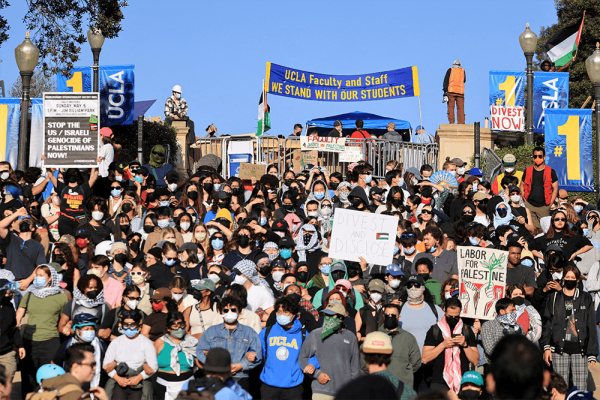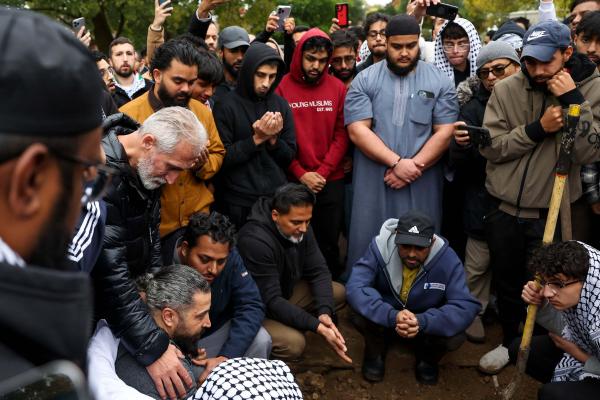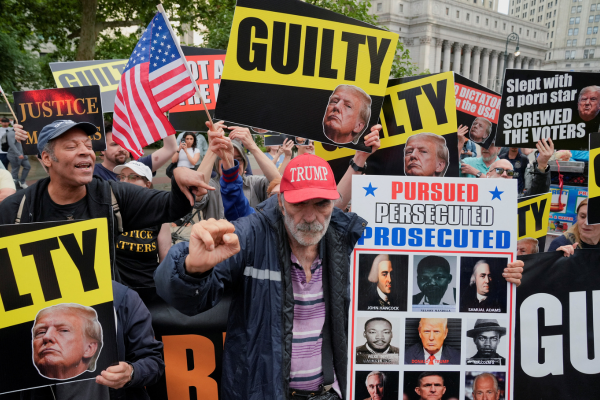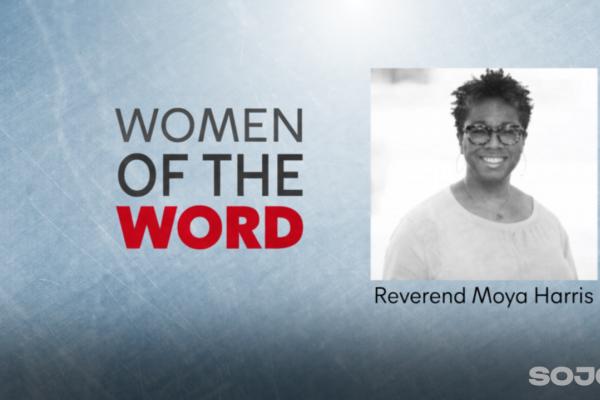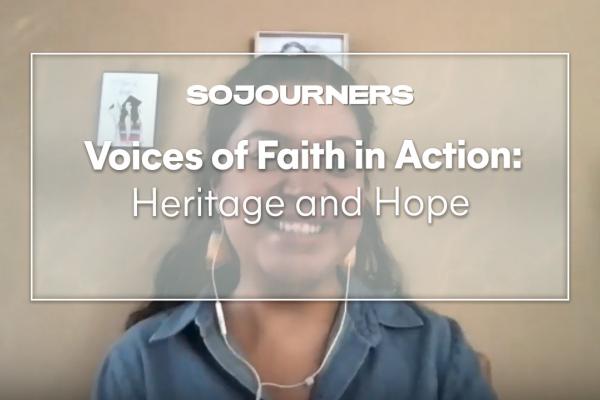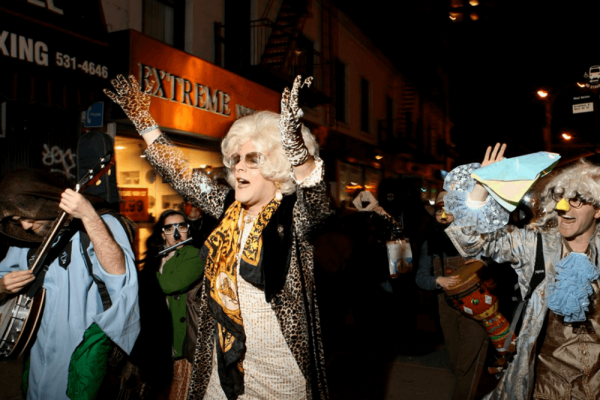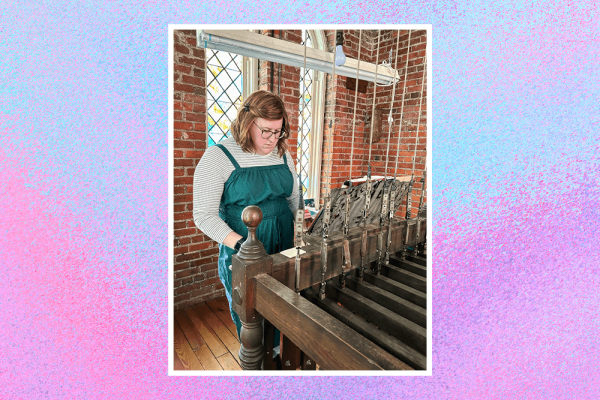Since Oct. 7, 2023, when Hamas launched a terror attack against Israel, young people across the country have looked with alarm at Israel’s military action and the U.S. support for it.
“As soon as that day happened, I felt I was just kind of flung into high gear,” said Logan Crews, who is a first year Master of Divinity student at Yale University. “I began talking to friends right away and just processing through what was happening.”
Since 2021, before he started his program at Yale, Crews has been involved in several protests for Palestinian liberation.
Since the start of the war, he and other students at Yale have participated in several peaceful protests at Yale and around New Haven, hoping to get people in power to listen. On Oct. 17, a few days after the start of the Israel-Hamas war, Crews participated in a walkout at Yale asking the university to divest from weapon manufacturing companies. Last November, he also visited Sen. Bernie Sanders’s office in Washington, D.C., where he met the senator’s chief of staff and asked for the senator to call for a cease-fire as well as vote no on a military spending bill.
On Apr. 15, Crews and other students at Yale started what became the “Occupy Yale” movement, where they set up encampments in the college’s Beinecke Plaza to protest U.S. involvement in the Israel–Hamas war and demand financial divestment from manufacturing companies that supply military equipment and weapons to Israel. The next week, almost 50 students involved in the movement, including Crews, were arrested.
Student protests and encampments around the country come as an expert at the United Nations said it was reasonable to describe Israel’s actions in Gaza as “acts of genocide.” Israel’s military has deprived civilians in Gaza of food, electricity, and safe birthing conditions, and their military offensive has led to death of more than 35,000 people, including 14,000 children according to Palestinian authorities. Hamas has killed about 1,200 Israelis and foreign nationals since Oct. 7, according to the U.N.
The goal of setting encampments for students at Yale, Columbia, and other universities has been to convince their academic institutions to disclose any financial investments in companies that profit from Israel’s military offensive and divest from any holdings in Israeli companies or companies that manufacture military equipment for Israel.
So far, only a handful of institutions, including Brown and Northwestern, have agreed to listen and respond to students’ demands.
Spiritual care alongside protest
The majority of protests have been hubs of peaceful action; a celebration of culture and religion where young adults from all kinds of backgrounds — including Jewish students — have come together to pray, sing songs, break bread together, and find community.
“My peers at Yale have been offering spiritual support by showing up to the encampment early in the morning when students are waking up in their sleeping bags after they’ve slept out overnight on tarps … being there waiting with prayer books or a guitar and ready to pray for people or sing, welcoming people into the circle to pray for a better world,” Crews said. “Doing so alongside our Muslim and Jewish siblings, who offer prayer of their own ways, has been really impactful.”
Serene Jones is the president of Union Theological Seminary, which is affiliated with Columbia University and partners together for Columbia’s divinity and social work program. Jones and several students hosted a communion service at the Columbia encampment on April 21. The next day, students from Union helped organize a Passover Seder for the protesters.
Recently, the seminary also became the first U.S. institution to divest from companies that profit from Israel’s war in Gaza.
Eli McCarthy, who teaches peace and justice at Georgetown and George Washington University and is a fellow with the Franciscan Action Network, said that the camps are full of spiritual care that students have access to when they need. McCarthy has been supporting protests at several institutions in the Washington, D.C., Maryland, and Virginia area. By having Christian services, Muslim prayers, and Jewish seders in camp together, students have been learning how to set aside their differences and stand up for justice together.
“The resilience of my peers when I’m feeling depleted and when I’m feeling hopeless, that at least one other person might have some hope and they might find me, and they might give me a hug and share that hope with me … Having all of these witnesses of God’s love surrounding me just lifts me up when I’m feeling down,” Crews said.
The students have also been supported and encouraged by more tenured faith activists.
Lisa Sharon Harper, a writer and activist who founded consultancy platform FreedomRoad.us, was invited by political activist and minister Mark Thompson to visit the Columbia encampment on April 28. Harper, a Columbia alum, read from the beatitudes to encourage the students, just days before the New York Police Department first began arresting students.
“Blessed are the peacemakers, the shalom makers, the salaam makers, for they shall be called children of God,” Harper told protesters. “And here’s where I wept: Blessed are those who are persecuted for justice’s sake, for theirs is the kingdom of heaven.”
Harper told Sojourners that there was “something jarring about seeing all of those tents, and the cost that these students were paying, in order to help change the world.”
“I want the glory of the kingdom of God,” she said. “And therefore, even one image of God being threatened on Earth is an affront to my faith, let alone 40,000.”
Protesting violence through civil disobedience
While some have decried the encampments as bothersome, or misrepresented them as violent, several experts in civil disobedience have commended the student encampments.
Historically, protesters have peacefully and publicly broken the law “to engage the rest of us in a conversation about justice,” wrote Harvard professor Archon Fung. The violent and forceful response from police, Fung wrote, was disproportionate.
When violence has taken place at college campuses, it was mostly a result of turmoil with counter-protesters or the police, including the horrific scene at UCLA on Apr. 30, where protests were largely peaceful until counter-protesters started harassing and abusing students, according to reporting from The New York Times.
Historically, Christian activists have argued that Jesus himself was a model of peaceful civil disobedience, in the way he instructed his followers to interact with Roman authorities.
“One thing that I think is really critical here, particularly from a Christian perspective, is that these encampments are a form of nonviolent resistance,” McCarthy said. “The power of nonviolent resistance is to create disruptions that shift the power dynamic so that negotiations and advocacy can be more effective. This is what Martin Luther King Jr. talked about during the Civil Rights Movement.”
Tim Nafziger, an activist and consultant who has worked with Community Peacemaker Teams for more than 20 years, was invited by some of the faculty at UCLA to lead a de-escalation training at the campus encampment on Apr. 27 and 28. He estimates about 20 people, including faculty, participated in the training.
“It’s very impressive to see the ways that the students and the people in there came and understood that they had to be disciplined, and they had to figure out how to de-escalate,” he said. “I want to do everything I can to support people, students especially, who are taking action for the first time. That’s what discipline is about for me as a Christian. That’s some of what Jesus is inviting us to do: to show up for justice and peace in concrete ways with people who are being marginalized.”
McCarthy sees the role of Christian organizations as “increasing the leverage for the students who are calling for divestment at their universities.”
“One of the things that has most drawn me to Jesus and the Christian journey is Jesus’ closeness and intimacy with those who are in the midst of struggle, or who are being oppressed or being harmed and Jesus’ willingness to not just be near them and to be sympathetic, but to be willing to challenge the powers,” he said.
McCarthy said challenging powers meant the “political, religious, military, or economic powers that are contributing and enabling this harm, particularly in Gaza right now.”
He said he has been facilitating discussions about breaking out of conflict and violent cycles in his classrooms. During one of the sessions, he conducted a restorative circle for students in his classroom, where some students sat inside the circle and talked about their experience of the conflict and how they can start to heal from the harm.
“I had students who are Palestinians or Arabs, or just very supportive of Palestinians. I had students who are Jewish. I had students who are neither supportive or not sure where they are,” he said. “As a religious community, what we can bring to these spaces is shifting this frame from retributive justice — which is what Israel is doing in Gaza, and what our administrators think they’re doing by arresting kids and suspending kids … toward a restorative justice.”
Got something to say about what you're reading? We value your feedback!
